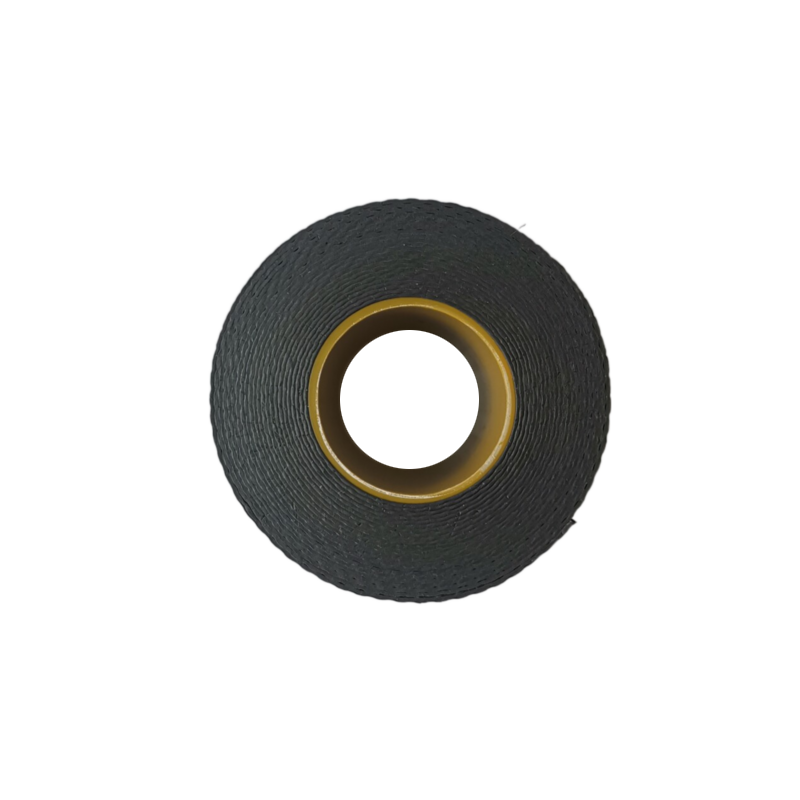Exploring PVC Harness Tape Versatility and Benefits
PVC (polyvinyl chloride) harness tape is becoming increasingly popular in various industries due to its unique properties and functionalities. Used primarily for electrical applications, it serves as an insulator and protective cover for wiring and cables. Its wide ranging applicability makes it an essential item in both industrial and residential settings. This article will delve into the various characteristics, uses, and advantages of PVC harness tape while also shedding light on why it has become a staple in modern electrical applications.
What is PVC Harness Tape?
PVC harness tape is a type of adhesive tape made from polyvinyl chloride, a synthetic plastic polymer known for its durability and flexibility. The tape is typically coated with a pressure-sensitive adhesive on one side, allowing it to stick securely to various surfaces. The thickness and texture of the tape can vary, catering to different applications, ranging from light-duty tasks to heavy-duty requirements.
Key Characteristics
1. Electrical Insulation One of the primary functions of PVC harness tape is its excellent electrical insulating properties. It prevents electrical currents from escaping and protects wires from external elements.
2. Durability PVC is renowned for its robustness and resistance to wear and tear. The tape can withstand extreme temperatures, making it suitable for a variety of environmental conditions.
3. Flexibility The tape’s flexibility allows it to conform to different shapes and sizes, making it easy to apply in tight spots or on irregular surfaces.
4. Water and Chemical Resistance PVC harness tape is resistant to water, oils, and some chemicals, protecting the underlying materials from damage due to moisture or chemical exposure.
5. Variety of Colors The tape is available in a range of colors, making it easier to code and identify different wires and cables in installations.
Applications of PVC Harness Tape
1. Electrical Wiring Insulation It is predominantly used for insulating electrical wires and cables. This protects the wiring from short-circuits, thereby enhancing safety.
pvc harness tape

2. Cable Bundling and Management PVC harness tape is ideal for bundling cables together. It keeps wires organized and can help prevent tangling and damage to the cables.
4. HVAC Systems PVC harness tape is also used in heating, ventilation, and air conditioning systems to insulate wires and ensure efficient operation.
5. Home and Office Beyond industrial uses, PVC harness tape has found its way into homes and offices for various DIY projects, including repairs and organization purposes.
Advantages of PVC Harness Tape
1. Cost-Effectiveness PVC harness tape is relatively inexpensive compared to other insulating materials, making it a cost-effective option for businesses and homeowners alike.
2. Ease of Use The tape is easy to apply and can be cut to any size as needed. This user-friendly nature helps in speeding up installation processes.
3. Availability With the growing demand, PVC harness tape is widely available in stores and online, making it accessible to everyone.
4. Long Shelf Life Due to its chemical resistance and durability, PVC harness tape has a long shelf life, making it a practical item to have on hand for emergencies or unexpected repairs.
Conclusion
PVC harness tape is an integral tool that combines versatility with functionality. Its properties make it indispensable in electrical applications, while its usability extends to various fields such as automotive and HVAC. As industries continue to evolve, the demand for reliable and efficient materials like PVC harness tape is likely to increase. Whether you’re an electrician, a DIY enthusiast, or simply someone in need of a reliable tape for everyday projects, PVC harness tape is an invaluable addition to your toolkit. Its low cost, durability, and ease of use ensure that it will remain a staple for years to come.
-
XIANGFAN Rubber Tape-Ultimate Solutions for All Your Insulation NeedsNewsJun.24,2025
-
XIANGFAN Rubber Tape-Protection for Industrial and Residential ApplicationsNewsJun.24,2025
-
XIANGFAN Rubber Tape: Superior Safety and Sealing for Demanding EnvironmentsNewsJun.24,2025
-
XIANGFAN Rubber Tape: Reliable Solutions for Every Electrical ChallengeNewsJun.24,2025
-
XIANGFAN Electrical & Industrial Tape: Powering Reliability Across IndustriesNewsJun.24,2025
-
XIANGFAN Electrical & Industrial Tape: Excellence in Every ApplicationNewsJun.24,2025
